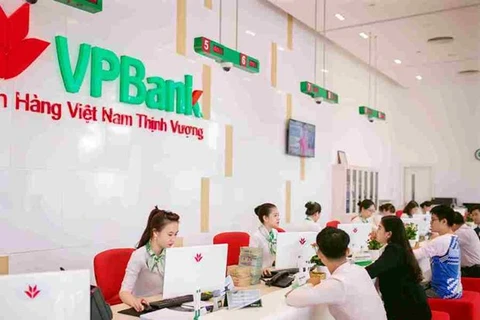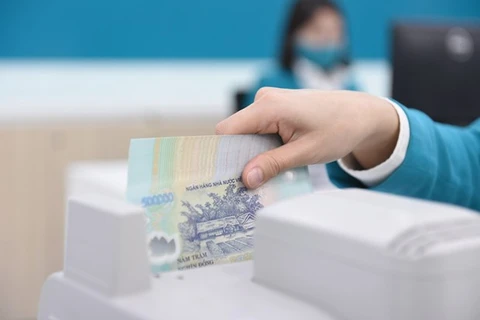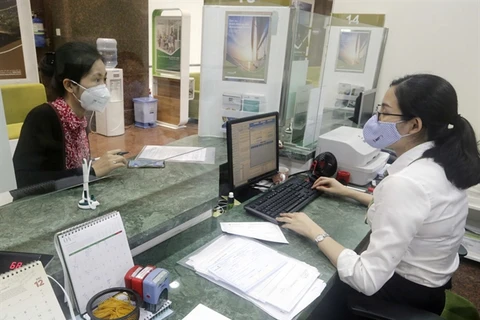 Banks lent large corporate customers more than 3.2 quadrillion VND by the end of 2020. (Photo: baodautu.vn)
Banks lent large corporate customers more than 3.2 quadrillion VND by the end of 2020. (Photo: baodautu.vn) Although banks have tried to boost retail credit for individual customers in recent years, big corporate customers are still their main targets as a credit contract with a large enterprise can bring a profit hundreds of times higher than that of thousands of small credit contracts of individual customers.
The SBV said bad debts of large corporate customers in 2020 increased compared to the end of 2019. The total outstanding loans that banks lend to large enterprises exceeded 3.2 quadrillion VND, accounting for more than 30 percent of the total outstanding loans of the entire economy. Of which, bad debts accounted for 1.65 percent of the loans. Notably, bad debts for enterprises with outstanding loans of 5 trillion VND or more was 2.42 percent, higher than the average bad debt ratio of the banking system.
As many banks are increasingly dependent on large corporate customers, risks have increased.
Although the SBV did not specifically mention the 3.2 quadrillion VND loans, it is estimated that the large enterprises mainly operate in the real estate sector.
According to experts, real estate credit is not bad because the real estate market is a fundamental market and its development will lead to the growth of the entire economy. However, the SBV’s warnings about large corporate credit and real estate credit are understandable.
First, some banks are too focusing on a number of large enterprises. At many banks, real estate credit is not only reflected in huge corporate loans but also huge corporate bond investments.
Second, in terms of data, cross-ownership in the banking sector has decreased sharply, but in reality, this relationship is increasingly complex. General meetings of shareholders in the banking industry this year also witnessed many new bosses appointed who also run large real estate groups.
Third, banks could face liquidity difficulties if they lend too much capital for a few large enterprises, as in recent cases when banks have struggled with loans worth tens of thousands of billion dong to build-operate-transfer (BOT) enterprises that have failed to pay their debts due to difficulties in their business.
When lending to enterprises, banks always have tools to calculate and prevent risks. However, avoiding too much focus on large customers will spread risks, experts said.
Experts suggested to deal with the risks, under a project to restructure the system of credit institutions associated with bad debt settlement for 2021-25, the SBV should draft the restructuring with a focus on asset quality but not the size of banks. Many countries are also trying to develop small but quality banks, which lend to individual customers and small and medium-sized enterprises, instead of depending too much on big enterprises.
In addition, to reduce risks for banks, the SBV must gradually raise banks’ risk governance standards, require them to be more transparent about governance and improve the independence of the banks’ executive boards./.
VNA























